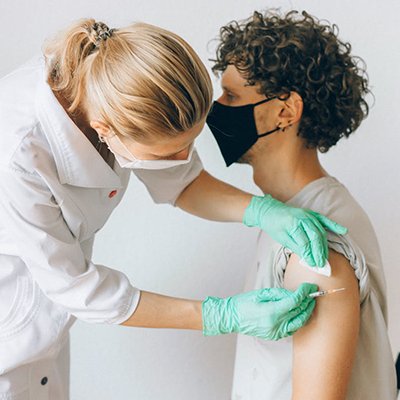Traveling internationally can be playing Russian roulette with your health if you haven't researched before getting on that plane. Everyone should be up-to-date with their home country's routine vaccination program and then check their country's travel advisory website for any other vaccinations that may be suggested or required (such as yellow fever) for their destination. Vaccinations will protect both yourself and those around you, basing your requirements on where you are heading, what you will be doing, the length of your stay, and what medical conditions you may already have.
The most at-risk travelers are babies and young children, pregnant women, and people with existing medical conditions (especially if immune-deficient)—especially if you plan on attending crowded events or staying in remote areas with poor resources. Migrants returning home to visit family in rural areas where there is close contact with locals are also another category of people at a higher risk of infection of some type.
The Common Woes Preventable by Vaccination
Measles
As of writing this article, measles cases have increased globally since 2023, when about 10.3 million people were infected. Measles is hyper-infectious, with 9 out of 10 unvaccinated people becoming infected after contact with the germ. It's an aerosol-borne disease—think sneeze droplets. Popular destinations such as Thailand, India, and Indonesia are on the measles list of the top ten countries with infections. According to the World Health Organization, no country today has eliminated the bug due to various factors such as low vaccination rates and/or travelers importing it. Young children under the age of two who haven’t had 2 doses of the MMR vaccine are the most at risk. Measles kills more than 200,000 people per year, predominantly children.
Hepatitis A, Typhoid, and Cholera
These are all food or water-borne infections that will give you the shits, which is never convenient when traveling. Imagine waiting in a queue to board your plane. Those unbearable stomach cramps hit your guts like a sledgehammer—it's a panic run while hoping the plane will wait for you, so be careful about what you put in your mouth to minimize any risk. Drink only treated or bottled water, avoid meat that isn't cooked correctly, and only eat raw veggies and fruit that can be washed in clean water or peeled.
Japanese Encephalitis, Yellow Fever, Tick-borne encephalitis, Dengue
The above are all vector-born—diseases transferred to humans or animals from pesky ticks, fleas, or mosquitoes. Japanes e encephalitis can be contracted in most Asian and Western Pacific countries, including Papua New Guinea and eastern Indonesia. Yellow fever is one to watch out for in South America and parts of Africa. Most of these countries require you to have a yellow fever vaccination certificate to cross the border.
e encephalitis can be contracted in most Asian and Western Pacific countries, including Papua New Guinea and eastern Indonesia. Yellow fever is one to watch out for in South America and parts of Africa. Most of these countries require you to have a yellow fever vaccination certificate to cross the border.
While there is no vaccination against Dengue, one is available to prevent a secondary infection, but it's only given under strict guidelines.
Mumps, Chickenpox, Meningococcal disease and Influenza
The above are all aerosol-borne bugs (droplets and saliva), just like measles, and these nasties run around the world. Meningococcal is mainly found in sub-Saharan Africa, while, as we all know, various strains of the flu can be found globally. Chickenpox and mumps tend to have ad hoc outbreaks in particular regions and are highly contagious.
Hep B and Mpox
Hep B can be transmitted through infected blood or bodily fluids (you know what they are), especially during sexual contact, the sharing of drug-injecting equipment, or from mum-to-bub when giving birth. Hepatitis B is prevalent in Asia, Africa, Central and South America, and Oceania. Mpox (formerly known as Monkeypox) can also jump the chasm between two people through up close and personal contact, the sharing of personal items such as beds and linen, sexual partners, and household members. It can even jump from animals to people in regions where infected animals can be found. A viral disease, Mpox was declared a worldwide public health emergency by The World Health Organisation in August 2024, and it's ongoing.
Rabies
Contracted from rabid dogs, wild animals, bats, and other mammals through their saliva when biting or scratching, rabies can be found in numerous countries. It attacks the central nervous system, and once the symptoms develop (confusion, agitation, delirium, seizures, and hallucinations), it's usually fatal.
Travel vaccines are vital for any traveler to stay safe when globe-trotting. Which ones you should get jabbed with are not just based on any particular country. Travel vaccines encompass those that your country routinely recommends, those based on your travel itinerary and activities, and, importantly, those required by the International Health Regulations to enter specific countries.
Gail Palethorpe, a self proclaimed Australian gypsy, is a freelance writer, photographer and eternal traveller. Check out her website Gail Palethorpe Photography and her Shutterstock profile.















